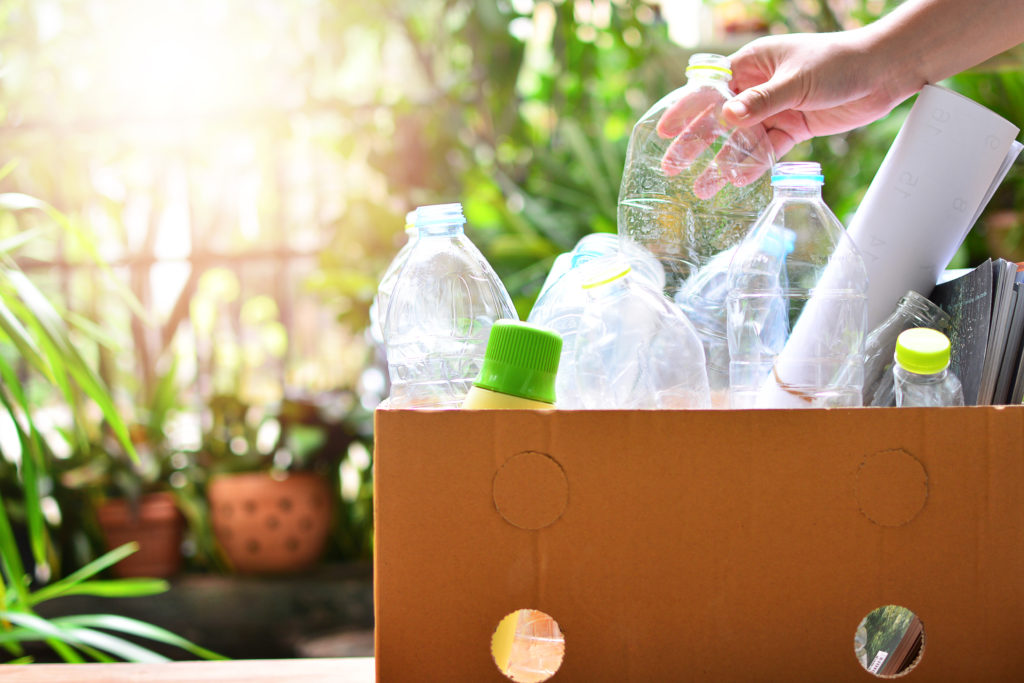
Recycling sector
The recycling sector’s roadmap for a fossil-free and circular economy both addresses the recycling companies’ own journey to becoming fossil free and how greater use of recycled materials can enable other operations to reduce their own emissions.
Only material recycling of steel, aluminium, plastic, paper and glass reduce greenhouse gas emissions by more than 7 million tonnes a year. Because the majority of climate emissions from the production and the consumption stages are caused by linear material streams, there is great potential to reduce emissions through increased recycling.
In the EU, more than 60 percent of emissions from the steel, chemicals and cement industries could be eliminated with the help of increased material efficiency and circular business models.
Targets in roadmap
2025: 30% reduction in greenhouse gas emissions compared with 2015.
2030: 50% reduction in greenhouse gas emissions compared with 2015.
2040: Net zero greenhouse gas emissions.
To implement the roadmap, the industry is working on:
- reducing the use of fossil fuel in transport and in treatment processes, instead switching to electricity or biofuel.
- encouraging more companies and procurement to use recycled materials instead of new.
- developing and investing in new recycling technologies.
- actively contributing to the development of new circular standards and regulations.
The Industry Organisation for Private Recycling Companies in Sweden, Återvinningsindustrierna, is responsible for the process of implementing the roadmap by, among other things, producing data for industry-wide climate calculations that form the basis for future action.
Progress since the roadmap was launched
New platform for climate-adapted and circular procurement
Clear environmental criteria in procurement is key in the transition to a fossil-free and circular economy. For this reason, Återvinningsindustrierna, IVL and the innovation programme Re:Source have launched a website for public procurement in an lifecycle perspective that provides support when drawing up procurement criteria.
Partnerships to increase recycling and use of recycled material
Återvinningsindustrierna’s members have been involved in a number of different research and collaboration projects for increased recycling since the roadmap was launched. Several investments in new technology for sorting, recycling and using recycled materials have been made in the past year, as have partnerships with manufacturing companies to increase the recycling rate of products. Some examples of partnerships:
- Renewcell is building a plant in Sundsvall using technology unique in the world for recycling textiles. The plant is expected to come on stream in the first half of 2022 and will be able to take 60,000 tonnes of textile waste annually.
- Ragn-Sells is building the Ash2Salt plant in Högbytorp, making it the only actor in the world capable of recovering commercial salts from fly ash. Operation is estimated to begin in summer 2022.
- Stena Recycling is working in partnership with Borealis, Sweden’s first plastic refinery to chemically recycle plastic streams that cannot be recycled mechanically. The plant is expected to commence operation in 2024.
- Van Werven has built Sweden’s largest facility for recycling hard plastic material. The plant in Sexdrega was completed in July 2021 with a capacity of 45,000 tonnes.
- Batteryloop has created a circular system in which batteries from electric vehicles are re-used as energy storage.
Industry challenges
There are currently no incentives to increase the proportion of recycled materials in new products. Without formal requirements from the EU or national level, the transition to a circular economy will move slowly because in many cases, virgin raw materials are still cheapest.
In many cases, there is still a lack of electric vehicles that are adapted to the needs of the recycling industry, and economically competitive compared with conventional vehicles. The same is true of access to renewable fuel for vehicles and machinery that cannot be electrified, and renewable fuel for some material recovery processes.
- Aggregates industry
- Agricultural sector
- Automotive industry – heavy transport
- Automotive industry – passenger cars
- Aviation Industry
- Cement industry
- Concrete industry
- Construction and civil engineering sector
- Digitalisation consultancy industry
- Electricity sector
- Fast moving consumer goods industry
- Food retail sector
- Forest sector
- Gas sector
- Heating sector
- Heavy road haulage industry
- Maritime industry
- Mining and minerals industry
- Petroleum and biofuel industry
- Recycling sector
- Ski resort sector
- Steel industry
- The Innovation and Chemical Industries
Process owner: The Swedish Recycling Industries’ Association
Published: 2020




